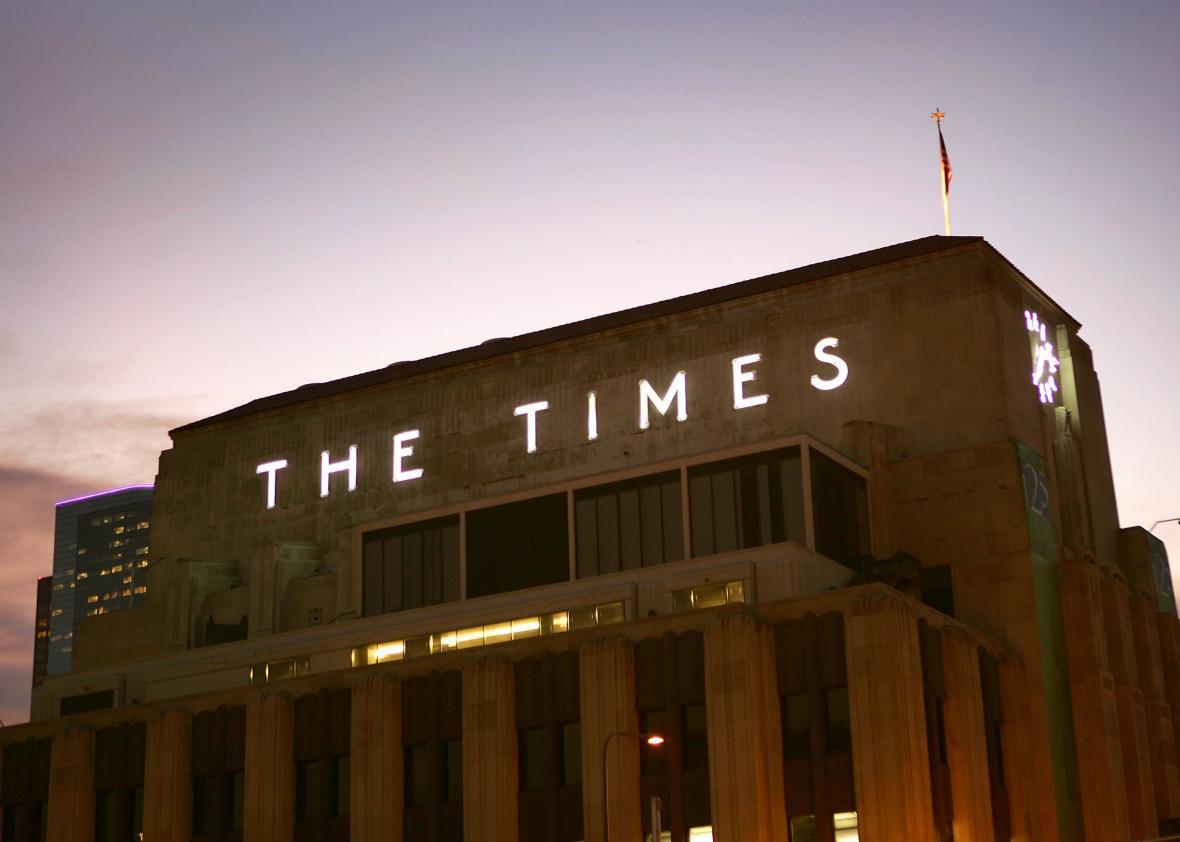On Friday, news broke that the Walt Disney Company had decided to bar critics from the Los Angeles Times from advance press screenings to punish them for running this fascinating series about Disney’s political influence in Anaheim, California. The Times announced the news in a note to its readers that ran with their 2017 Holiday movie preview, saying that they would continue to review Disney films, but their critics would only be able to see them when tickets were available to the general public. This puts them at a huge competitive disadvantage to other outlets that can have reviews ready in advance, which is exactly the point.
What’s more, according to Indiewire, Times television critics have been locked out of access to Disney’s press sites—ABC, A+E, and ESPN—and the paper will also be barred from press screenings of Disney-owned Marvel and Lucasfilm movies like Thor: Ragnarok and The Last Jedi. To explain their actions, Disney released the following statement:
We regularly work with news organizations around the world that we don’t always agree with, but in this instance the L.A. Times showed a complete disregard for basic journalistic standards. Despite our sharing numerous indisputable facts with the reporter, several editors, and the publisher over many months, the Times moved forward with a biased and inaccurate series, wholly driven by a political agenda—so much so that the Orange County Register referred to the report as “a hit piece” with a “seemingly predetermined narrative.” We’ve had a long relationship with the L.A. Times, and we hope they will adhere to balanced reporting in the future.
But reporter Daniel Miller, who reported the first part of the Times series, tweeted that Disney had not requested any factual corrections. Sputtering about bias and inaccuracy while pointedly failing to identify any specific inaccuracies is par for the course these days, but using press screenings as a club to beat outlets whose business coverage displeases you is not a great look, and the press has been responding to Disney’s vindictive tactics.
Flavorwire jumped first, publishing a note from film editor Jason Bailey explaining that they would no longer cover Disney, Marvel, or Lucasfilm movies until the ban was lifted. Washington Post writer Alyssa Rosenberg announced she wouldn’t attend any Disney, Marvel, or Lucasfilm advance screenings and would see and write about the films under the same conditions as the Los Angeles Times as a gesture of solidarity, noting that she likes “journalistic independence from corporate influence” more than any Disney film. The A.V. Club will be following the same policy, as editor A.A. Dowd announced in his own note. So will Boston Globe critic Ty Burr, according to the Hollywood Reporter. And CNN’s Jake Tapper is now a Los Angeles Times subscriber:
Filmmakers weren’t thrilled, either, including Academy Award-winning director Ava DuVernay, who has a Disney movie, A Wrinkle in Time, coming out in February:
It’s an inspiring show of resistance to corporate bullying, but, as Verge editor Tasha Robinson tweeted, it’s not necessarily going to be much sweat off Disney’s back:
So perhaps the best solution is for the Los Angeles Times to offer more Disney coverage, not less. Of course, without access to the newest Disney films and TV shows to review, they’ll have to go back to the vault for material. Wall-to-wall coverage of Mickey’s Mellerdrammer or Song of the South would probably be unfair—what studio didn’t make a virulently racist feature in 1946? (And what studio didn’t send that feature back to theaters in 1956, 1972, 1973, 1980, and 1986, then make a theme park ride about it?) But there is one part of Disney’s recent cultural heritage that’s both fair game and ripe for rediscovery: the 2003 ABC television series Are You Hot? The Search for America’s Sexiest People. Remember that?
What contributions did this show make to American culture? What’s became of the judges, contestants, and crew in the 14 years since it aired? What was the environment like on-set? Does anyone involved have any regrets about spending time and money to bring this into the world? These are just a few of the many questions Los Angeles Times journalists could address, perhaps with an oral history. What else are they going to do, watch Thor: Ragnarok in advance so they can run their review at the same time as other outlets?
We are well on our way to a world in which multimillionaires control even the press outlets they don’t own outright, rewarding journalists for turning a blind eye to the various schemes they cook up and punishing those who bring them negative attention. Disney (and CEO Bob Iger, who reportedly has presidential ambitions) are sending up a trial balloon. Throw some darts.
